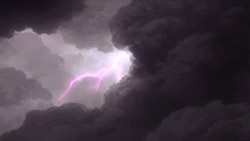 |
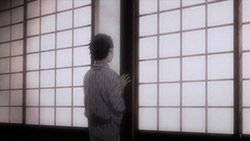 |
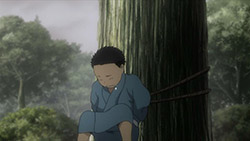 |
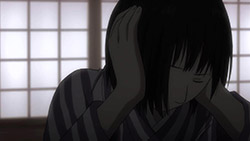 |
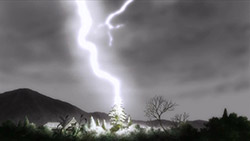 |
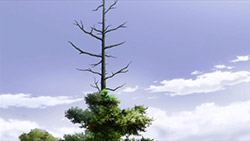 |
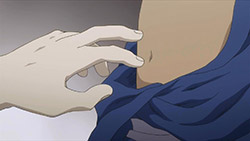 |
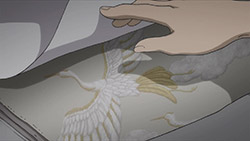 |
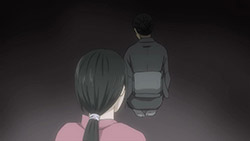 |
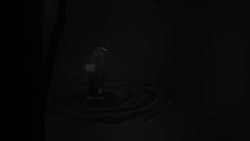 |
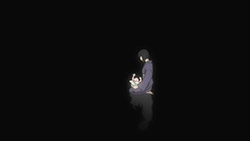 |
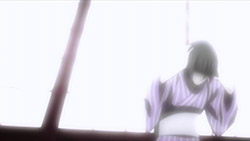 |
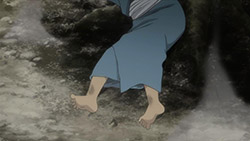 |
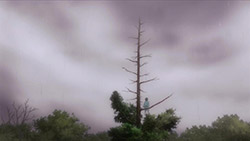 |
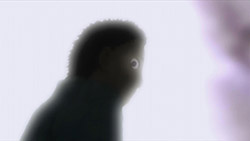 |
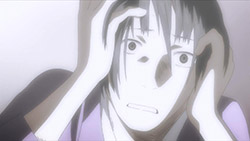 |
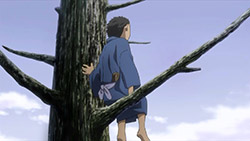 |
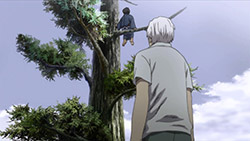 |
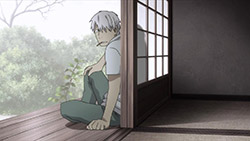 |
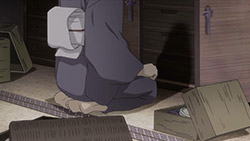 |
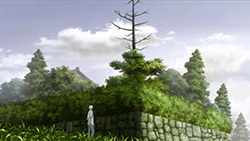 |
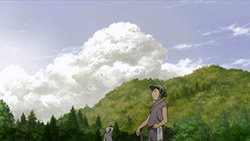 |
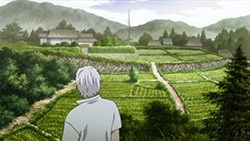 |
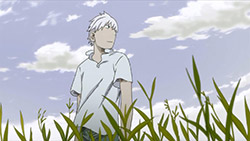 |
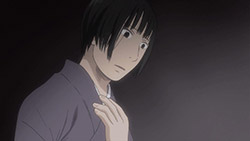 |
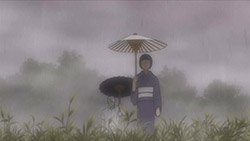 |
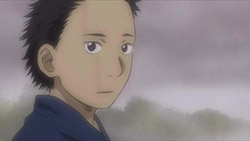 |
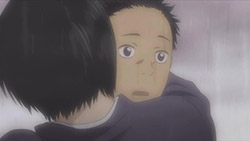 |
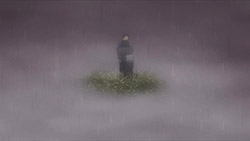 |
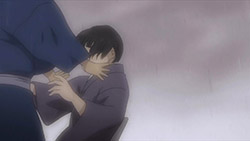 |
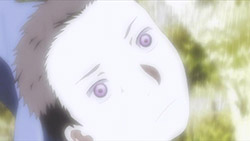 |
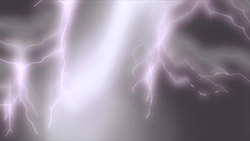 |
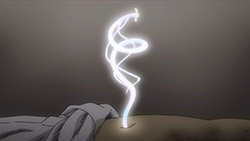 |
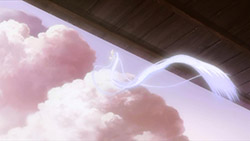 |
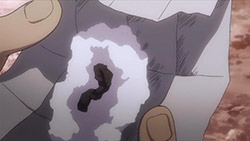 |
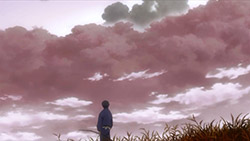 |
「雷の袂」 (Ikazuchi no Tamoto)
“Lightning’s End”
The weather was thundering incessantly while I was watching this week’s episode of Mushishi Zoku Shou, which made for a rather disconcerting experience. To make it worse, when I finished watching a heavy stroke of lightning hit a local electricity substation and the entire street lost power for the afternoon. How ominous.
Even without the dramatically compliant weather, Lightning’s End still makes for, in my opinion, one of the more morbid stories Mushishi has presented so far. It’s probably inevitable; thunder and lightning are traditionally signs of ill omen, in almost any culture you can think of. It’s telling that although Mushishi tends to be positive, even in tragedy (like last week), it’s far harder to find the silver lining this week. The ending was not tragic, but rather just bleak. and even the small hints are left ambiguous. Did his mother find it and give it to him before he was sent away? Or, more likely, did he have it all along, as a token of that maternal connection? It’s something to think about, but not much to be happy about. It’s telling how contrary Lightning’s End runs to many of the major themes in Mushishi. Where we have seen tight-nit families before, we now have a dysfunctional one. Where mothers have unwaveringly protected their children, Shino has only abusive neglect. Where other characters will struggle for life, Shino can only resort to death. Ginko has his work cut out for him this episode; his task is not just to exorcise a mushi, but to heal a broken family. He succeeds at one, but fails at the other. Not even our insightful master mushi-shi can console someone as fundamentally broken as Shino. There’s a lot to make one feel down this episode.
Yet, by playing foil to so many of Mushishi‘s tenants, Lightning’s End serves to highlight their importance. We need to remember that part of the reason Shino is the way she is today is because her own mother had abandoned her in turn. How does one feel maternal love, when they received none of it themselves? The tragedy is that while Shino cannot in honesty muster that love, she still feels like she should, which makes her past iniquities weigh even heavier on her psyche. It isn’t helped by the fact that many cultures see lightning as the wrath of the heaven; with each strike so traumatic, it’s no wonder Shino thinks her son was punishing her. She understands the connection mothers are supposed to have with their children, but cannot form it, and to her that is a sin. Death is the only possible atonement she allows herself.
The one ray of positivity is that Reki understands what the mother/son bond is suppose to be, too. In his own way, he treasures it. So for his mother he wishes life, not death. In a reversal of roles, it is the child who must stoically protect the parent. He lives through that, but sadly the maternal relation does not. With Reki being sent away, it does feel like something died to the lightning strike. The thought of it still puts me in a sombre mood. What was Reki thinking, as he contemplated the thunderheads? I don’t think I’ll be looking at them in the same way for some time. More than many other episodes, Lightning’s End is an ur-example of how Mushishi has a tendency to haunt the soul, even after the storm has passed.
Full-length images: 06.
Preview
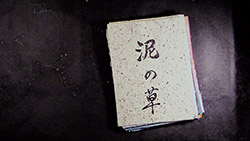 |

Such a detour from last week episode. The contrast is palpable.
For better or worse, Mushishi really shines when it depicts the honest struggles of someone whose life has been either healed or broken by other human negligent action or a Mushi unfortunate encounter. Many times I have said that the Mushi world is mostly a frightening one because of their existence, but now I feel that maybe i didn’t give the humans enough credit for their capability to harm.
In the end I feel the conclusion was fitting. Some things are not meant to be fixed in a certain way.
I agree, Mushishi shines in that aspect though I don’t think the world is a frightening one. Mushis seem no different from other lifeforms in their potential to affect others and most of them are just trying to live or survive like any other species. Like anything else, there are harmful ones and harmless ones.
I like the thematic structure of Mushishi and how that theme connects the previous episodes (family bonds and especially maternal ones). It makes the episode much more effective when you see the love the mother of last episode had for her son which is the love Shino couldn’t find in herself for hers. It’s quite sad that Shino couldn’t find that even until the end but not everything broken can be mended.
Children will love their parents by default but for the parents, well..
I’ll just quote from a movie, “You need a license to drive but nobody needs to acquire that to be parents”, or something along the line, although in this case the mother also had it quite rough too.
BTW I think the boy has the umbilical cord all along, since it is a symbol of maternal relationship and Shino literally can’t find it but Reki has been treasure it all this time.
Have you ever seen, “We need to talk about Kevin”? Yes, probably a more extreme example, but many, many children… do not love their parents. Some even to the point of lethal hate. I, for one, loved my parents enough for them to keep wanting to provide their resources to me until I become an independent and self-sufficient adult. All infants are technically helpless parasites created by lust. Never forget that.
Vater werden ist leicht
Vater sein dagegen ist schwer
Become a father is easy
Father to be, however, is difficult
Well, exchange Vater/Father with Mutter/Mother
Perfect weather for watching Mushishi
Arguably the best anime series ever – the extremely low number of comments on RC only adds credibility to it.
Get off your high horse. Low popularity does not always equal greatness. It takes skill/talent to create something that will resonate with a lot of people.
Not here it doesn’t, especially with the junk you guys watch.
Based on that logic, Argevollen is the best anime of the season.
Did Shino want to kill Reki when she tied him to the tree? Because I can’t tell. And it’s important to me, because it depends on this if I feel any sympathy for the mother too or not.
The way I understand it, that was the time Reki was possessed by the shouraishi. Shino was trying to discipline Reki for some unknown wrong and tied him to the tree. By Shino’s horrified expression when the lightning struck, that was not the intended outcome.
She tried to abort him when he was in her womb, it’s not that hard to see that this was her second attempt at murder.
I feel for both the mother and child. Shino is forced to marry someone who doesn’t love her, who doesn’t have to bear much weight or guilt simply because he is the father (why isn’t HE brought out to chase down the child?). Shino was not supported by her mother, is in such clear psychological distress that she tries to kill herself and remains depressed for years. None of this of course is the child’s fault at all and it’s terrible he pays the price for being born when such unjust systems were in place, and when no recognition or effective treatment of psychological problems was in place. Ginko’s limitations are his society’s: he cannot treat depression, cannot be a psychotherapist or provide anti-depressants.
In the end, I feel more hope for the boy. He’s away from a toxic situation (is able to wave and engage with friends) while the mother, simply because she is female, is stuck in a loveless marriage dealing with her depression and probably being reminded of her failures constantly. I suspect she will succeed at suicide in the future and yes, that too is a terrible tragedy.